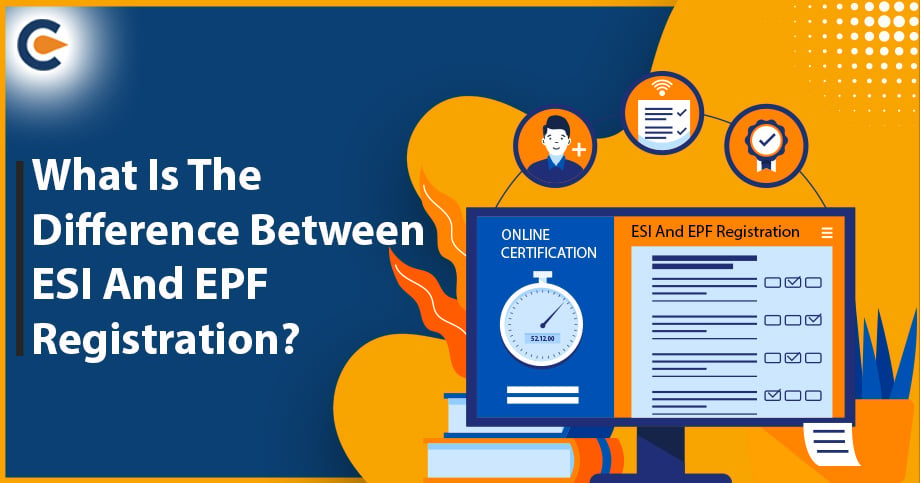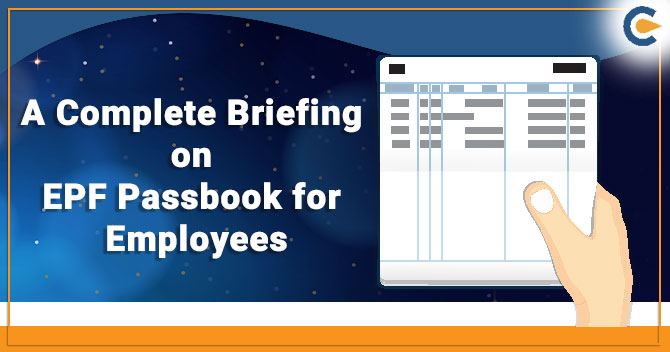Every cooperate operation, including payroll, is governed by a set of rules & regulations. If you have been managing your employees’ payroll in India for a while, you have probably heard of EPF (Employee Provident Fund) Scheme and (ESIC) Employees’ State Insurance Corporation Scheme. In India, ESI and EPF are 2 vital social security schemes that are available to the working class. Both schemes were introduced to improve the living conditions of the working class in India. The Ministry of Labour & Employment regulates both of these schemes.
In these schemes, the employer contributes an amount in proportion to the salary of the employee & then the total is deposited into the employee’s account. However, there is a difference between the ESI and EPF Registration & they serve different purposes.
What Is The Meaning Of ESI And EPF?
- EPF: EPF or Employees’ Provident Fund is a Scheme introduced for a bright & better future for the employees. Under the EPF Scheme, a small amount of your employee’s wages is deducted & contributed to the EPF account. Being an employer, you have to match the same amount put in the employee & deposit in the whole amount in the EPF account. Further, it is linked to the ESIC Scheme.
- ESIC: ESIC Scheme is a workers’ compensation plan that provides medical coverage for the insured. Moreover, their dependents are also protected. ESIC provides a number of financial compensations in the event of disability or wage loss. The Scheme provides a pension known as dependent benefit to the insured person’s family members, in the instance of injury or death caused by occupational dangers while at work. ESI along with EPF, Professional Tax & TDS are some of the most vital payroll compliance.
How Are ESI And EPF Applicable?
Following are the applicability of ESI and EPF Schemes in India:
- EPF Applicability & Contribution: According to the present rule, every organisation with 20 or more employees is grateful to register with EPF & facilitate employees with EPF benefits. Organisations with less than 20 employees can also join this programme but on a voluntary basis only.
The Act doesn’t apply to the following:
- Employees who get benefits in the nature of 16(1)(b) contributory Provident Fund or old age pension as per rules framed by the Government 16(1)(b) Establishments under the control of the State or Central Government and employees who get benefits in the nature of 16(1)(b) contributory PF or old age pension in accordance with the Rules framed by the Government.
- 16(1)(a) Cooperative Societies with fewer than 50 members that operate without the use of electricity.
- 16(1)(c) Establishments established under any Central, Provincial, or State Act, as well as employees receiving benefits in the form of contributory pension funds or old age pensions as per the Laws.
- ESIC Applicability: The ESIC Scheme for India is an integrated social security scheme designed to provide Social Production to organised sector workers & their dependents concerning to contingencies like maternity, sickness & death or disability owing to an employment injury or occupational hazard.
Applicability
- The system has been expanded to include hotels, theatres, road-motor transport ventures, stores, restaurants, and newspaper establishments employing 20 or more individuals as per Section 1(5).
- Companies & factories employing 20 or more people that are not seasonal & do not use electricity.
- Non-seasonal factories that use power-in & employ 10 or more individuals.
Eligibility Criteria for ESI and EPF Registration
Following are the eligibility criteria for ESI and EPF Registration:
- Eligibility Criteria for ESI Registration:
- All organisations are listed under the Shops & Establishments Act and Factories Act;
- Factories & other businesses must register with the ESI Schemes if they have 10 or more employees;
- Employees earning wages not exceeding Rs. 21,000/month will be covered to check the requirements of ESI Registration.
- Eligibility Criteria for EPF Registration:
- Any organisation or factory with at least 20 employees must register with the EPF Scheme;
- Company employees who have already registered for the EPF Scheme are automatically eligible for having their PF account opened as of the date of their hiring;
- An organisation or company with fewer than 20 employees may voluntarily register;
- All employees who get a monthly salary of less than Rs. 15,000 are obliged to deduct & deposit EPF.
Penalties If the Business Fails To Meet the ESI and EPF Requirements
ESI and EPF compliance is much more than just submitting your contribution by the month’s end. Your Business might be subject to the following penalties if Business fails to meet the ESI and EPF Requirements:
- For EPF:
- 12% of interest for each delay in contribution;
- Penalties for late payment contributions are as mentioned below:
- Delay of up to 2 months – 5% interest per year;
- Delay of up to 2-4 months – 10% interest per year;
- Delay of up to 4-6 months – 15% interest per year;
- Delay of more than 6 months – 25% interest per year.
- For ESI: Penalty of 12% per year on each late contribution.
Moreover, if your Business fails to meet the EPF or ESIC contribution requirement, it will fall under the purview of the IT Act & your Business might be restricted from making future EPF or ESI deposits, which might lead to a failure to get dedication benefits.
Conclusion
After discussing the difference between ESI and EPF, it is clear that ESI[1] Scheme was established to provide workers with medical, financial & other benefits. Whereas EPF is a social security scheme that enables employees to set aside a small amount of their wages for future benefits.











